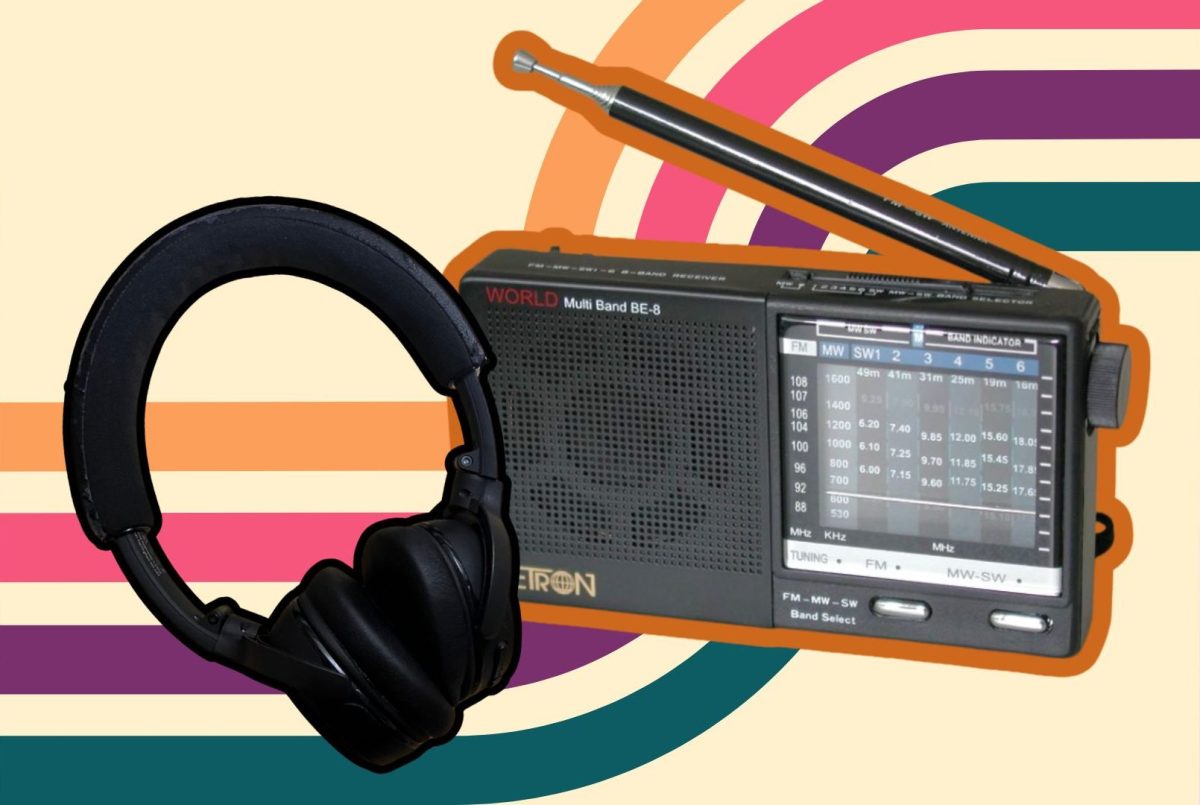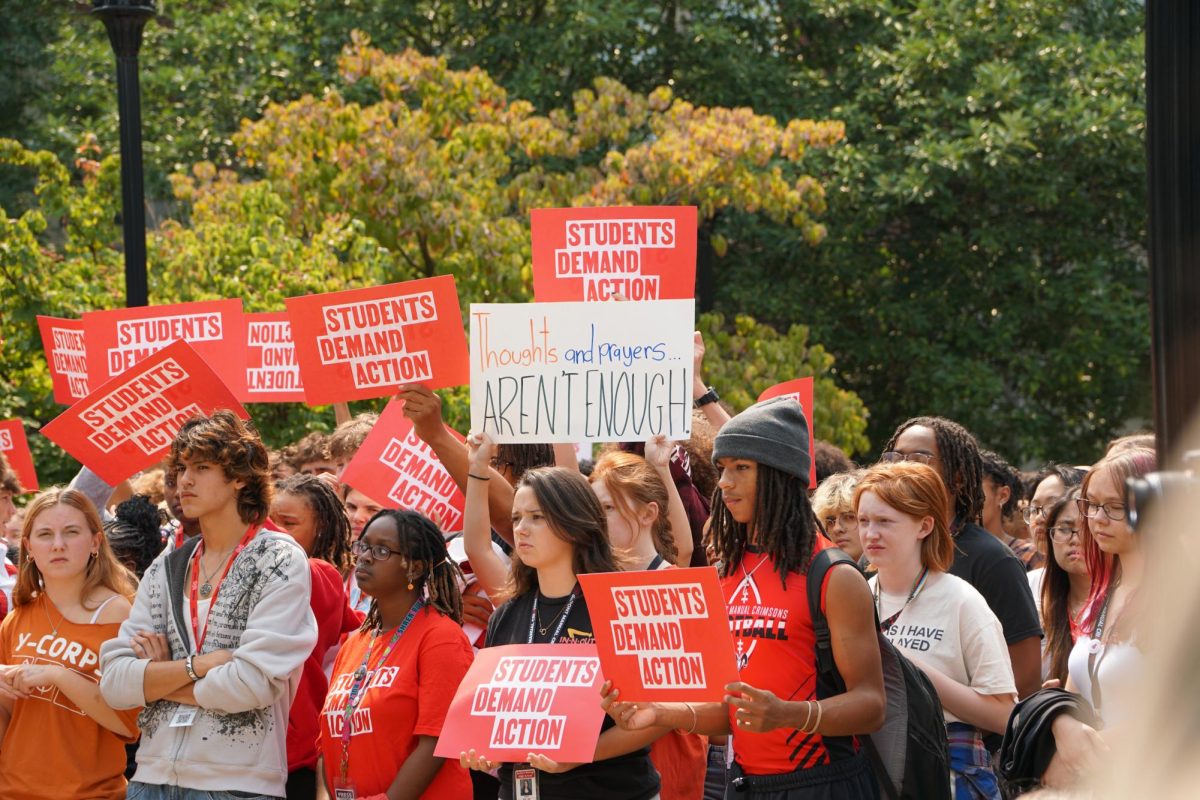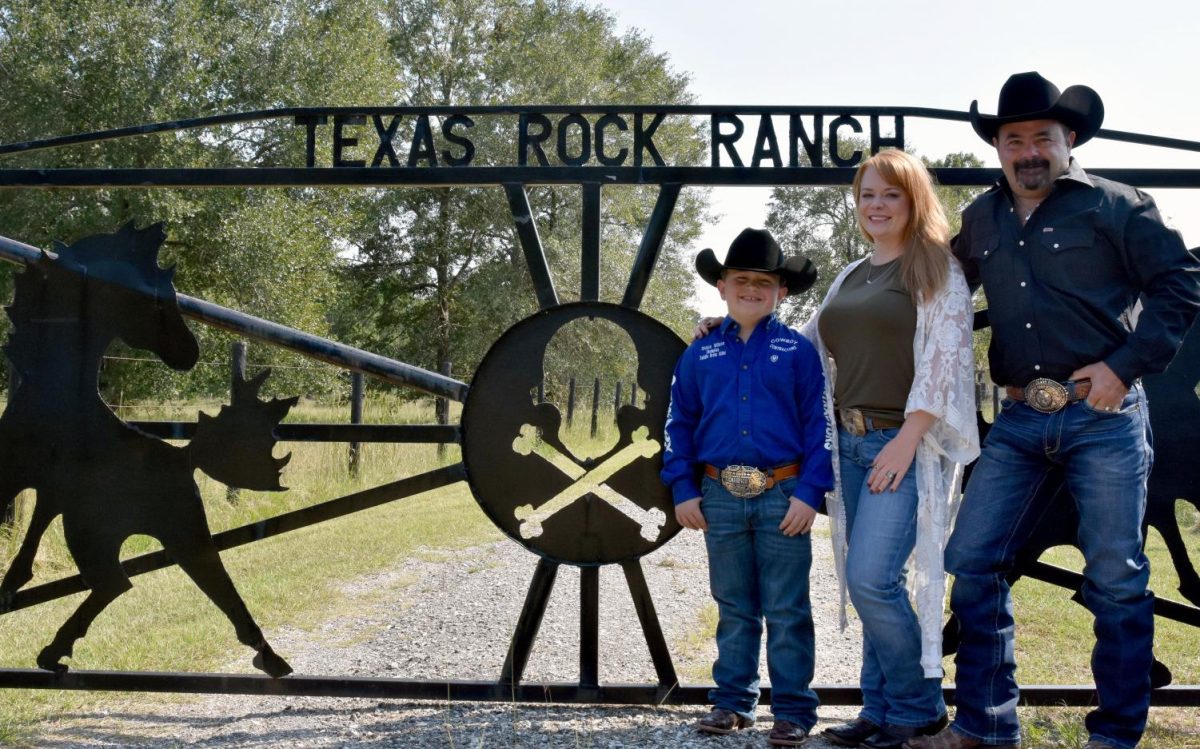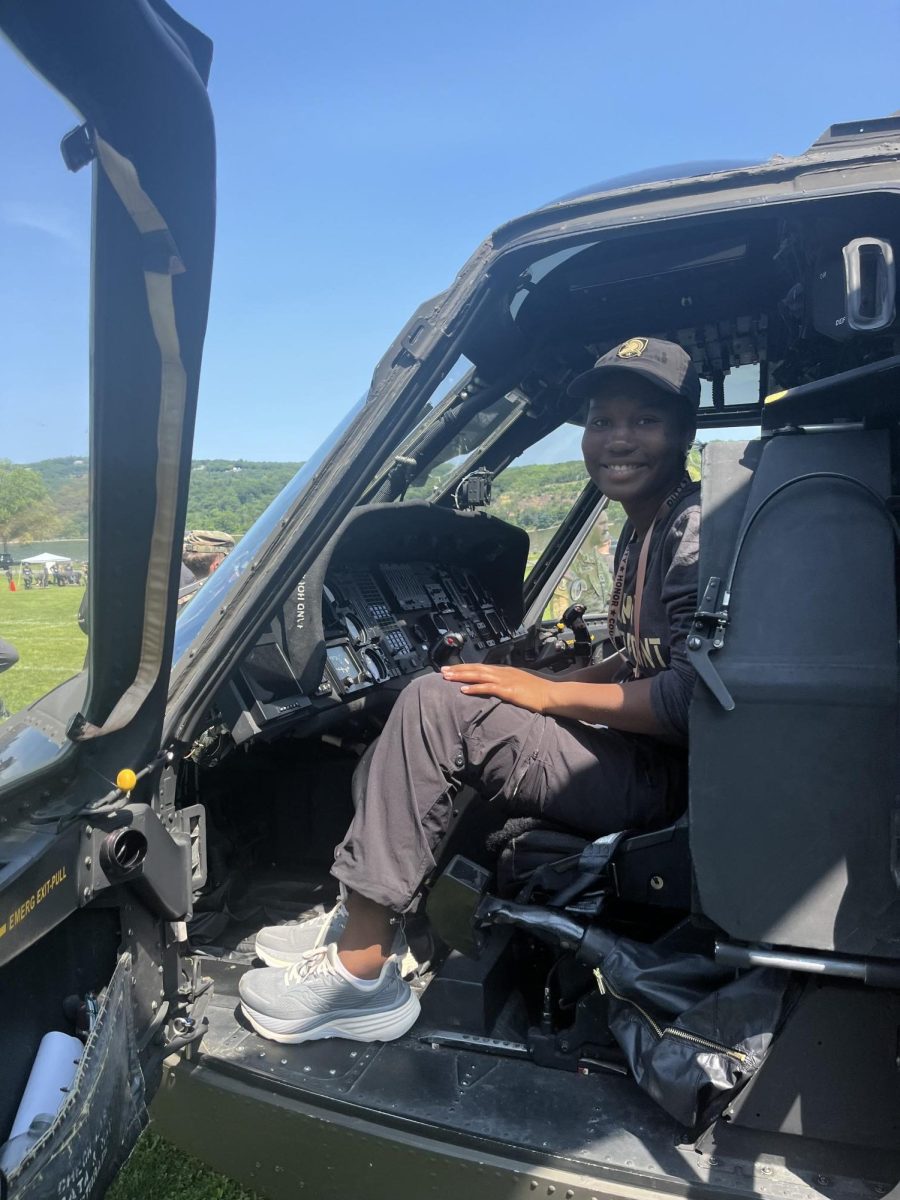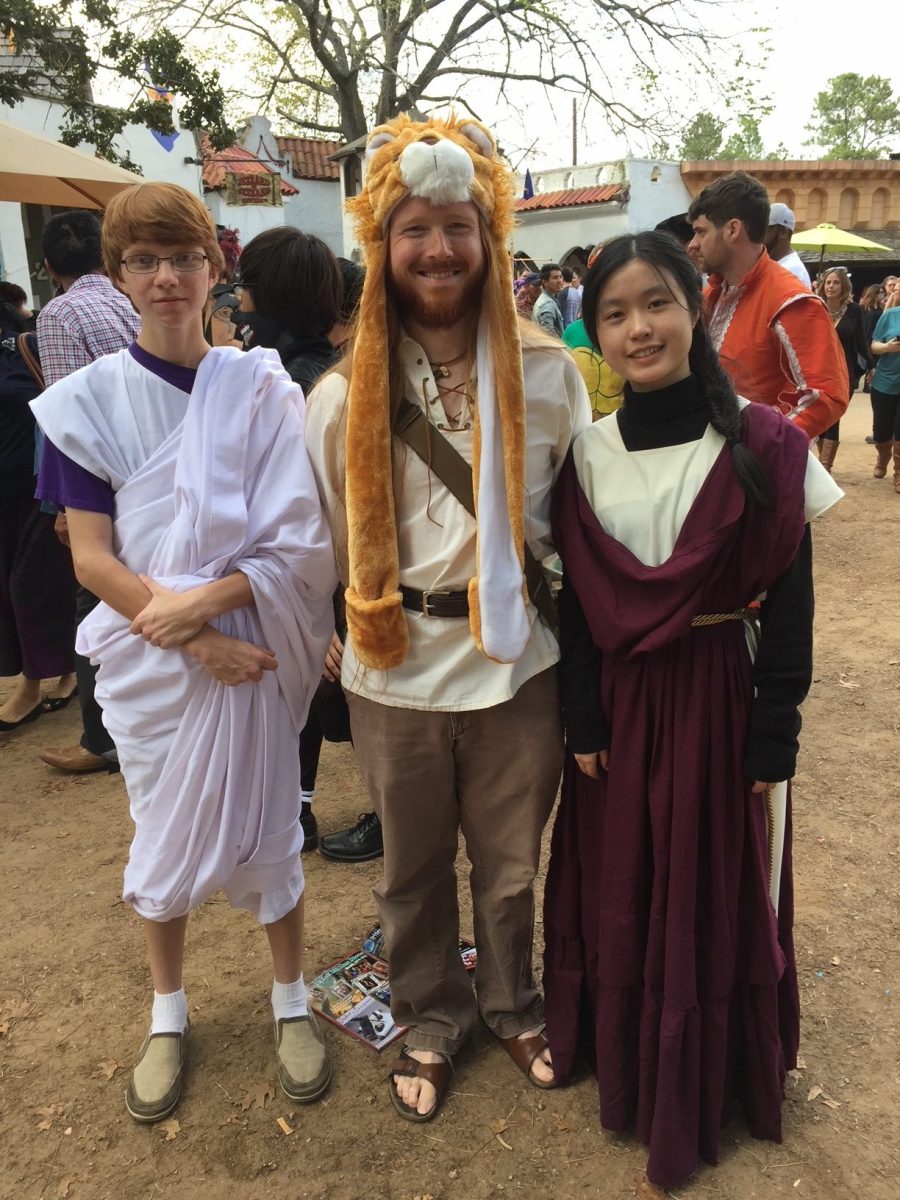He’s a modern-day Renaissance man in every way.
While Andrew Hamilton continues the classical tradition of teaching Latin, he also knows “a little bit about literally everything.”
From dance to Descartes, piccolo to Picard, symphonies to Seminar, Hamilton is Bellaire’s polymath.
But he didn’t always want to be a teacher. Growing up, Hamilton actually wanted to be an inventor.
“Then someone explained to me right around the age of 10…that that wasn’t actually a job title,” Hamilton said.
Dreams dashed, Hamilton set his sights on studying to be an engineer, the closest thing to an inventor, while attending Kinder High School for Performing and Visual Arts. In 11th grade, Hamilton enjoyed the model-based Physics 1, but Physics 2 and beyond took him away from the physical world and into the theoretical.
“I remember the day that I wanted to quit was when I went [to Physics 2],” Hamilton said. “I had a thermodynamic equation … and once I got onto my third page, I was like, ‘This is not for me.’”
While engineering didn’t appeal to him, HSPVA’s AP World History, taught by Robbie Campbell, reignited Hamilton’s passion in ancient history started by sixth grade world cultures.
“AP World History was where I figured out those particular things that I was both interested in and skilled enough [at] that it set me apart from others to some extent,” Hamilton said. “Just sitting and listening about all these different cultures for 5000 years of history plus was just always fascinating to me.”
HSPVA’s band, orchestra and musicals also offered Hamilton a way to continue playing oboe, an instrument he learned in third grade that would stick with him for the rest of his life.
“I got a couple of gigs later in my high school career [and also played] in the pit orchestra for a couple of musicals,” Hamilton said. “I liked the complexity of the double reeds…a tenor oboe was what I had the most fun [with].”
When Hamilton was a junior, the HSPVA Symphony Orchestra played a concert together with the professional Houston Symphony at the renowned Jones Hall. After he graduated, he played at a joint concert with the Houston Symphony at Jones Hall again, this time as a part of the Houston Civic Symphony.
“That was a blast,” Hamilton said. “You get a sense of what it’s like on [the symphonists’] end because they’ve played most things that are in the classical repertoire two, three times at least, in concert.”
According to Hamilton, he “very much” has a professional training in the oboe. He could have pursued music when applying to University of Houston but kept at it as a hobby.
“For me, it was always something that enriched my life more so than I thought it would be a career choice,” Hamilton said. “I wanted something that seemed like more to me.”
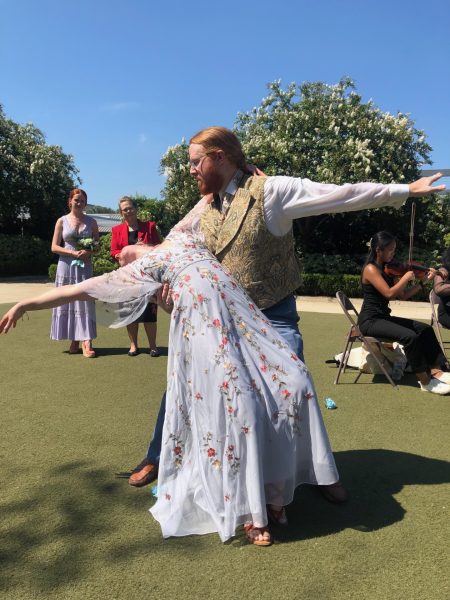
Instead, Hamilton majored in history, which introduced him to ancient Greek and ancient Latin, a “gateway language drug.” He then picked a second major of Classics and a minor in ancient political theory.
“Things that were far away from me [in terms of] space and time were always the most interesting,” Hamilton said. “My interest in ancient history came from the same place, where there were things that were out of my current realm of understanding.”
After he graduated, Hamilton became a teacher like his mother, Gail Hamilton, who taught geometry at Pin Oak Middle School for nearly 30 years. Being exposed to teaching so early on, Hamilton knew what the life of an educator looked like, and he immediately started teaching Latin at Westside High School. His original plan had been to become a history teacher, but there were much fewer history teacher openings than Latin teacher openings, making the market for the job more competitive.
“Essentially, I skipped the line,” Hamilton said. “I got straight into doing something that I was interested in, rather than having to build up a resume with other things that I wasn’t interested in.”
Now eight years into teaching at Bellaire, Hamilton has carried on the thriving Latin program of about 60 students. Still, he refuses to travel to Rome on the yearly Italy trip, citing accessibility concerns.
“It always seemed like they were out of reach for too many students when I knew that many of the kids that I would really want to have that experience probably couldn’t afford it,” Hamilton said. “I certainly couldn’t when I was in high school. I was raised by my mom, and she was a teacher, so the salary wasn’t sending us to banquets. That experience also made me hesitant to get into [chaperoning international trips] as a teacher. If there were trips that I knew that people were able to go [on] even though they couldn’t afford it, I would consider it much more.”
Even though Hamilton doesn’t bring his class to Rome, he does bring his intimate knowledge of Roman history to the classroom.
“He’s one of my favorite teachers because he truly made a connection with the students,” senior Mya Brownlow said. “I really love learning about history. I love the little fun facts.”
And now with AP Seminar, a class he used to teach at Westside and still grades AP exams for, Hamilton continues intertwining the past with the present to make students think critically about the future.
“He’ll have those connections,” junior Owen Cheng said. “If [what we read] is old, he’ll get it.”
College Board requires that AP Seminar students analyze art and “foundational texts,” which Hamilton has perceived as an opportunity to teach Enlightenment era and Greek philosophical writings.
“My background in history and in Classics really gives me that range that not everybody has,” Hamilton said. “That was actually the reason why I was originally asked to teach [AP Seminar] at Westside because I was teaching art history at the time. One of the APs came up and said, ‘You seem to have something to say about most things. Perhaps you might be interested in doing this.’ I said, ‘Well, I think I would,” so I did. The breadth necessary to teach the course certainly helps. It is ‘not a content but a skills-based course.’ We can really talk about anything as long as we exercise the skills.”
Whenever he can, Hamilton enhances the classroom experience with his background knowledge, making metaphors and connections to areas like music, etymology and philosophy. And in both Latin and AP Seminar, Hamilton makes sure his students leave with at least one takeaway:
“The human person has not radically changed throughout its entire history, merely what we do with our minds,” Hamilton said. “We tend to think of ancients as ‘those dumb people,’ but their brains are basically the same brains that we have. What we actually have to work with hasn’t significantly changed.”
This story was originally published on Three Penny Press on December 29, 2023.

